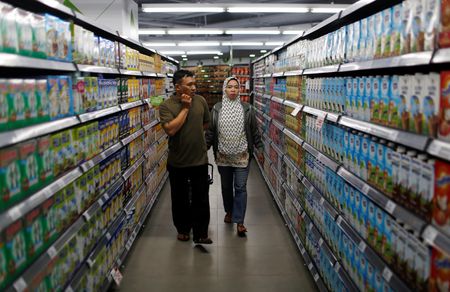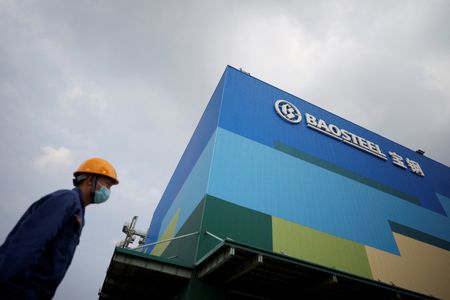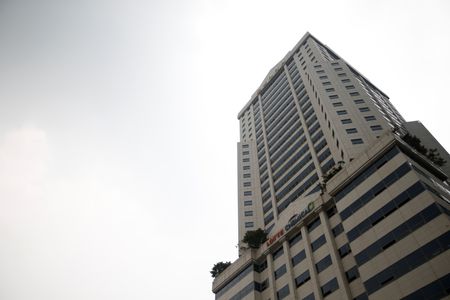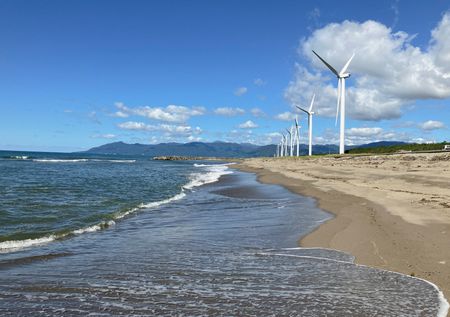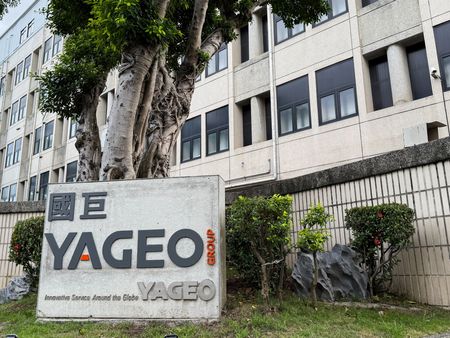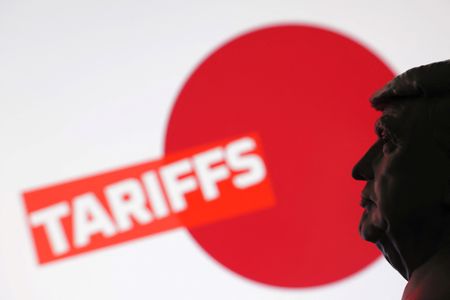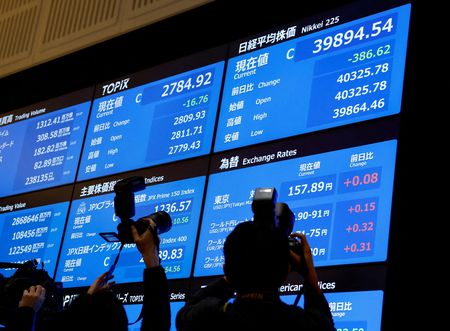By Stanley Widianto and Jennifer Rigby
JAKARTA (Reuters) -Indonesia will set a deadline of two years for food and beverage companies to meet new labelling norms for products high in salt, sugar or fat, a government official told Reuters, a move that spells more delays in efforts to curb fast-rising obesity.
Health ministry data shows obesity became twice as prevalent over the decade to 2023 in the world’s fourth most populous nation of 280 million, while child agency UNICEF warned of risks to one in three adults and one in five school-age children.
The grace period for labelling norms follows lobbying by the United States, regional trade group Food Industry Asia and domestic manufacturers, who have urged the government of President Prabowo Subianto to reconsider enforcement.
“We explained to the WTO what our steps are: educational first, then two years from now, restrictions kick in,” health ministry official Siti Nadia Tarmizi said in an interview.
She was describing Indonesia’s response last year to queries from the World Trade Organization on the labelling plan, which envisages strictures such as advertising curbs and a ban on sales near schools for incorrectly labelled products.
“Some countries, or if I’m not mistaken, the United States, questioned our policy,” added Tarmizi, the director of the department of non-communicable diseases.
The timeline and details of Indonesia’s plan, as well as the international lobbying efforts, have not been previously reported.
The U.S. Department of Agriculture referred Reuters’ queries on the matter to the Food and Drugs Administration, which did not respond to a request for comment.
Officials of the Indonesian Food and Beverage Association did not immediately respond to a request for comment.
Indonesia, which has ordered nutritional information displayed on processed food packaging since 2021, planned in 2024 to launch a traffic-light system of red labels for items high in fat, salt and sugar and green for those with low levels.
From the end of 2025, the ministry will allow companies to use their own traffic-light stickers and declarations on products before restrictions take effect two years later, Tarmizi said.
More than 40 countries use similar systems, whether voluntary or mandatory, the Organisation for Economic Cooperation and Development grouping of nations said in 2023.
Neighbouring Singapore has a similar traffic-light system on which the Indonesian version is modelled, Tarmizi added.
Many countries have faced intense pushback from industry groups, which often argue that companies already make clear the nutritional content of products.
Indonesia’s food and drugs agency will match labels with product contents in government-appointed laboratories to ensure their accuracy, Tarmizi said, adding that the moves followed efforts to collaborate with food and beverage firms.
“It’s hard to change habits,” Tarmizi added, referring to Indonesians’ consumption.
The WTO fielded the concerns of the USDA under former President Joe Biden and voiced in a notice to the global agency from November 2024 provided to Reuters to review.
U.S. foodmakers believe the labelling plan would have a “significant impact” on an estimated $54 million in goods exports to Indonesia, and urged it to delay plans to seek feedback from affected parties, the document showed.
Indonesia’s food and beverage industry had also sought a delay in mandatory labelling, the notice said, without giving details of expected impact or identifying specific companies.
Food labelling keeps “being bumped off” the list of priority legislation in Indonesia because of the lobbying, said public health advocate Diah Saminarsih.
“The industry always gives pressure on that,” added Saminarsih, founder of non-government health group CISDI.
“But more and more Indonesians are getting sicker with non-communicable diseases, such as cancer or diabetes, because of unhealthy foods.”
(Reporting by Stanley Widianto; Editing by Michele Gershberg and Clarence Fernandez)

